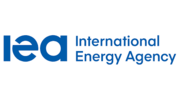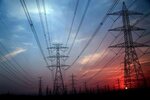News Release from International Energy Agency (IEA)
Wind Industry Profile of
The global transformation of the electricity sector requires greater efforts to ensure security of supply
The electricity sector, which plays a large and growing role in energy systems around the world, is undergoing its most dramatic transformation since its creation more than a century ago. The importance of electricity is only set to increase in the years ahead, calling for a more comprehensive approach to electricity security to meet evolving challenges such as cyber threats, extreme weather events and rapidly growing shares of variable electricity generation from wind and solar power, according to a new report by the International Energy Agency.
The report, Power Systems in Transition, is the first major global study to examine in depth these three key areas for the future of electricity security at the same time and offer recommendations for addressing them in a way that supports the acceleration of clean energy transitions globally.
“Energy security is at the heart of the IEA’s mission because it is critical for social wellbeing, economic prosperity and successful clean energy transitions. We are dedicated to helping countries around the world ensure that all their citizens have access to clean, reliable and affordable energy,” said Dr Fatih Birol, the IEA Executive Director. “Electricity is essential for the functioning of modern societies – as the Covid-19 crisis has highlighted – and for bringing down global emissions. This is why we are continuing to expand and deepen our work on electricity security.”
The report is being launched today at the 2nd Global Ministerial Conference on System Integration of Renewables, which is co-hosted by the IEA and the Singapore government. The event will bring together Ministers, industry CEOs and thought leaders from around the world for discussions on the theme of “Investment, Integration and Resilience: A Secure, Clean Energy Future.”
Electricity accounts for one-fifth of global energy consumption today, and its share is rising. It is set to play a bigger role in heating, cooling and transport as well as many digitally integrated sectors such as communication, finance and healthcare. In pathways towards meeting international energy and climate goals, such as the IEA Sustainable Development Scenario, the trend will accelerate. In that scenario, electricity could surpass oil as the world’s largest energy source by 2040. Wind and solar’s share of global electricity generation would rise from 7% to 45%, with all renewables combined generating more than 70% of the total.
Many countries today enjoy a high level of electricity security thanks to centrally controlled systems, relatively simple supply chains, and power plants that can supply electricity whenever needed. But recent technology and policy developments are now radically changing the sector and with it, the electricity security model that has prevailed for the past century. These developments include steep declines in the costs of variable renewables, the trends of decentralisation and digitalisation, and the impacts of climate change.
The challenge for governments and utilities is to update policies, regulations and market designs to ensure that power systems remain secure throughout clean energy transitions. The new IEA report maps out key steps for achieving this. An essential goal is to make systems more flexible so they can smoothly accommodate the variable electricity production from wind and solar. This includes making the best use of the flexibility on offer from existing power plants that can generate electricity when required, as well as increasing investments in grids and other sources of flexibility such as demand-side technologies and storage resources. However, global investment in these areas is declining, a trend that has been exacerbated by the Covid-19 crisis. An increase in investments should be facilitated by better-designed markets that reward power system resources that deliver flexibility and capacity.
The growing digitalisation of electricity systems, the rise of smart grids and the shift to a wider distribution of generation resources offers many opportunities and benefits. But with cyber threats already substantial and growing, it is imperative to strengthen cyber resilience measures and make them a central part of the planning and operation of power systems. Governments can achieve this through a wide range of policy and regulatory approaches – from highly prescriptive ones to framework-oriented, performance-based ones.
The effects of climate change mean that electricity systems need to become more resilient to the impacts of changing weather patterns, rising sea levels and more extreme weather events. This can be accomplished by giving a high priority to climate resilience in electricity security policies and establishing better standards to guide the necessary investments. Enhancing the resilience of electricity systems to climate change also brings multiple benefits.
The new IEA report identifies best practices and lessons learned from around the globe. It also provides a set of recommendations for institutional frameworks that establish clear responsibilities, incentives and rules; measures to identify, manage and mitigate risks; and protocols to monitor progress, respond and recover, including through emergency response exercises.
“The IEA is the world’s energy authority where governments and industry leaders can share experiences and expertise to help move the world towards a more secure and sustainable energy future,” said Dr Birol. “This report is the reference manual for policy-making on electricity security now and for years to come.”
The IEA’s expanding work on energy security challenges will next year include a special report providing a forward-looking assessment of the global supply of critical minerals for clean energy technologies.
- Source:
- IEA
- Author:
- Press Office
- Link:
- www.iea.org/...
- Keywords:
- IEA, report, electricity sector, sector, energy transition, renewable energy, worldwide, transformation, wind, solar, energy security


























